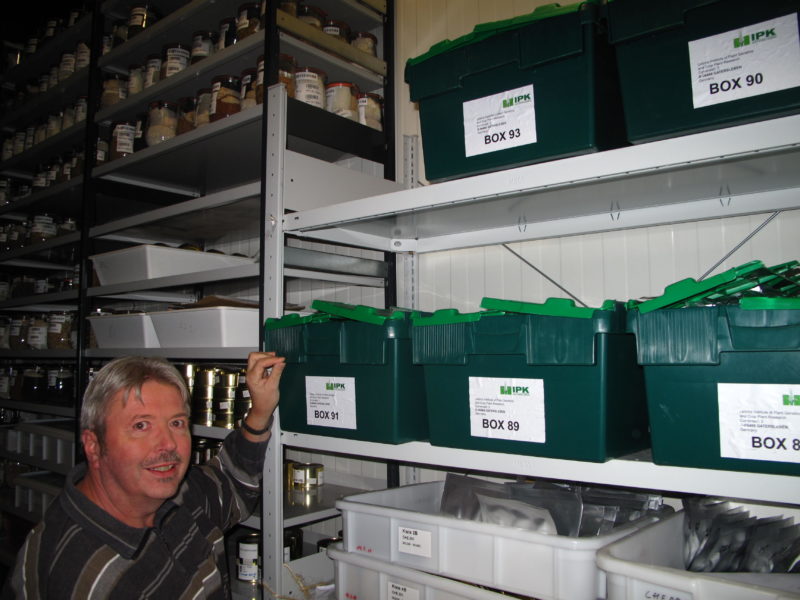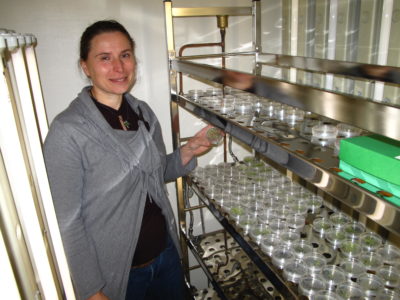

Leibniz Institute of Plant Genetics and Crop Plant Research (IPK) is one of the national gene banks that have deposited the largest numbers of seed samples in the Seed Vault. So far 54,209 accessions have been duplicated and secured in the Seed Vault. “The seed collection at IPK consists of about 140,000 seed accessions, and it is our intention to deposit copies of the entire collection in Svalbard”, says Dr. Andreas Börner, Head Management and Evaluation, Genebank at IPK.
Inspired by Nikolai I. Vavilov
IPK is also one of the oldest gene banks in Europe. The history started with friendship and good relations between the founder of the VIR gene bank in St.Petersburg Nikolai I. Vavilov and the founder of IPK Hans Stubbe before the Second World War. The predecessor of todays’ IPK was established outside Vienna in 1943. The facilities here were, however, demolished during the war and the first buildings at the huge IPK campus in Gatersleben were built in 1948. “So we actually celebrate the 75 years anniversary for IPK this year”, says Andreas Börner.

The relations to Vavilov and the Russian gene bank in St.Petersburg are still quite prominent. The Vavilov seminar is organized regularly and the main gene bank and office building, where the Seed Vault Coordinator was invited to give a lecture in the seminar, is called the Vavilov house.
The largest number of deposited species
IPK ship regularly seeds to the Seed Vault, once every year or every second year. During the ten years of Seed Vault operation, IPK has shipped seeds to the Seed Vault eight times. “We are preparing seeds for storage in the Seed Vault along with regeneration and multiplication of seeds carried out for our own purposes”, Börner explains. “Each time an accession not already duplicated in the Seed Vault is multiplied; we pack one extra sample and put it aside for the Seed Vault. When we have filled up an appropriate number of boxes we ship them to Svalbard for long term conservation there.”
“The IPK seed collection is very diverse, actually it consists of more than 3,000 different crop species and wild relative species that are related to crops”, he explains. Actually, IPK is the depositor gene bank that has deposited the largest number of species in the Seed Vault. Among the 54,209 seed samples deposited by IPK, 2,138 different plant species are represented.
Comprehensive reference collections

IPK also possess large botanical reference collections, in the form of herbaria specimens, seed and fruit samples and spikes from cereal crops. The Gatersleben Herbarium contains 445,000 specimens of cultivated plants and its wild relatives and is one of the largest herbaria collections for crop plants in the world. The Seed and Fruit collection contains 110,000 samples and the Spike collection 55,000 samples of spikes from different varieties and genotypes of cereal crops, mainly barley and wheat, which are two of the most important crops at IPK.
“Material from our reference collections is frequently used for education and research purposes”, says Dr. Klaus Pistrick, who is the curator for the collection. “We often lend specimens and samples to other researchers and institutes, and it is possible to withdraw small plant parts for DNA analyses for scientific purposes”, he explains.
